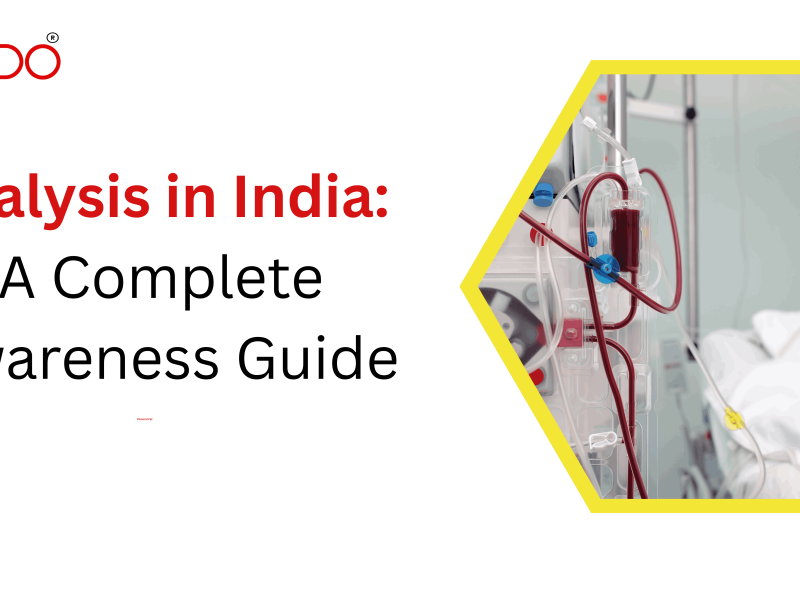Heart health has become a significant concern worldwide, with cardiovascular diseases (CVDs) being the leading cause of mortality. The growing demand for convenient and accessible healthcare solutions has paved the way for at-home diagnostic services, including ECG (Electrocardiogram) at Home. This innovative approach allows individuals to monitor their heart health from the comfort of their homes without the need to visit hospitals or clinics.
With advancements in telemedicine, ECG at home is becoming an integral part of preventive healthcare and early diagnosis of heart-related issues. In this blog, we will explore how ECG at home works, its benefits, and why it represents the future of heart health.
What is an ECG and Why is it Important?
An Electrocardiogram (ECG or EKG) is a medical test used to measure the electrical activity of the heart over a period of time. It helps detect irregular heartbeats (arrhythmias), heart attacks, heart disease, and other cardiovascular conditions.
Doctors often recommend an ECG test if a patient experiences symptoms such as:
-
Chest pain or discomfort
-
Irregular heartbeats (palpitations)
-
Shortness of breath
-
Dizziness or fainting
-
High blood pressure
Traditionally, ECGs are conducted in hospitals, diagnostic centers, or clinics. However, with the rise of home healthcare services, ECG tests can now be performed at home using portable ECG devices and professional assistance.
How Does ECG at Home Work?
Getting an ECG test at home is a straightforward process and ensures quick diagnosis and immediate medical attention when needed. Here’s how it typically works:
1. Booking an ECG at Home
With healthcare providers like VMEDO, you can book an ECG test at home online or via phone. You need to provide basic details such as your location, preferred time, and health condition.
2. Technician Visit and ECG Setup
A trained healthcare professional (technician or nurse) visits your home at the scheduled time. They bring a portable ECG machine and necessary equipment.
3. Electrode Placement
The technician places electrodes (small patches) on specific areas of your chest, arms, and legs. These electrodes are connected to an ECG machine that records the heart’s electrical signals.
4. Recording the ECG Readings
The machine records the heart’s electrical activity, which appears as a series of waveforms on the ECG monitor or paper printout. This helps doctors analyze the heart’s rhythm and detect abnormalities.
5. Report Generation and Doctor Consultation
Once the test is complete, the ECG report is either printed immediately or shared digitally with a cardiologist for review. Based on the findings, the doctor may recommend further tests or treatment.
Benefits of ECG at Home
1. Convenience and Comfort
With ECG at home, patients can avoid the hassle of traveling to hospitals or diagnostic centers, which is particularly beneficial for elderly patients and those with mobility issues.
2. Early Detection of Heart Problems
Since heart conditions often develop silently, regular ECG monitoring at home can help in the early detection of potential risks, allowing timely medical intervention.
3. Reduced Hospital Visits
For individuals with chronic heart conditions, frequent hospital visits for routine ECG tests can be exhausting. ECG at home eliminates the need for unnecessary hospital trips while still ensuring accurate monitoring.
4. Quick and Accurate Results
At-home ECG services provide fast and reliable results, allowing doctors to make informed decisions about further treatment, medications, or lifestyle modifications.
5. Ideal for Post-Surgery and High-Risk Patients
Patients recovering from cardiac surgeries, heart attacks, or those with a high risk of stroke need continuous monitoring. ECG at home ensures they receive proper cardiac care without leaving their home.
6. Cost-Effective
Hospital-based ECG tests often come with additional consultation fees, travel costs, and waiting times. ECG at home is often more affordable, especially for those requiring regular testing.
7. Reduces Risk of Infections
Visiting hospitals can expose patients to infections and viruses, especially those with weakened immune systems. Home ECG services eliminate this risk, ensuring a safe and hygienic testing environment.
Why ECG at Home is the Future of Heart Health
1. Growing Demand for Home Healthcare Services
The rise of home-based healthcare services is driven by a need for convenience, affordability, and accessibility. ECG at home fits perfectly into this model, making heart care more patient-friendly.
2. Advancements in Portable ECG Technology
Technological advancements have led to the development of compact, AI-powered ECG devices that can be used at home. These devices provide real-time heart health monitoring and instant medical insights.
3. Integration with Telemedicine
ECG at home services are often integrated with telemedicine platforms, allowing real-time consultation with cardiologists. Patients can share ECG reports instantly and receive expert advice remotely.
4. Increasing Awareness of Preventive Healthcare
People are becoming more conscious about their heart health, leading to an increased demand for preventive screenings like ECG tests at home. This shift in mindset is making ECG at home a mainstream healthcare service.
5. AI-Powered ECG Interpretation
Modern ECG machines are equipped with AI-driven algorithms that can analyze heart rhythms and detect abnormalities within seconds. This technology enhances the accuracy and efficiency of ECG at-home services.
6. Ideal for Rural and Remote Areas
Many people in rural and remote locations struggle to access healthcare facilities. ECG at home services bridge this gap by providing quality heart health monitoring to patients in distant locations.
Who Should Consider ECG at Home?
ECG at home is beneficial for various groups, including:
- Individuals with a history of heart disease
- Senior citizens requiring routine heart monitoring
- Post-surgery patients recovering from cardiac procedures
- Patients with high blood pressure and diabetes
- Athletes who need to monitor their heart health
- People experiencing symptoms like palpitations, dizziness, or breathlessness
How to Book an ECG at Home with VMEDO?
Booking an ECG test at home with VMEDO is simple and hassle-free. Follow these steps:
- Visit VMEDO’s website or call their helpline – 9343-180000
- Choose the ECG at Home service
- Provide details like location, preferred time, and medical condition
- A trained technician arrives at your home with the ECG machine
- Test is conducted, and reports are shared digitally or in print
- Consult a doctor online for further diagnosis if needed
Conclusion
ECG at home is revolutionizing heart health monitoring by making it more accessible, convenient, and cost-effective. With advanced technology, growing healthcare awareness, and the integration of telemedicine, ECG at home is set to become a standard part of heart care.
If you or your loved ones require regular heart monitoring, consider VMEDO’s ECG at Home services for a hassle-free, professional, and reliable experience. Early diagnosis can save lives—take charge of your heart health today!
Book your ECG at home with VMEDO now!



